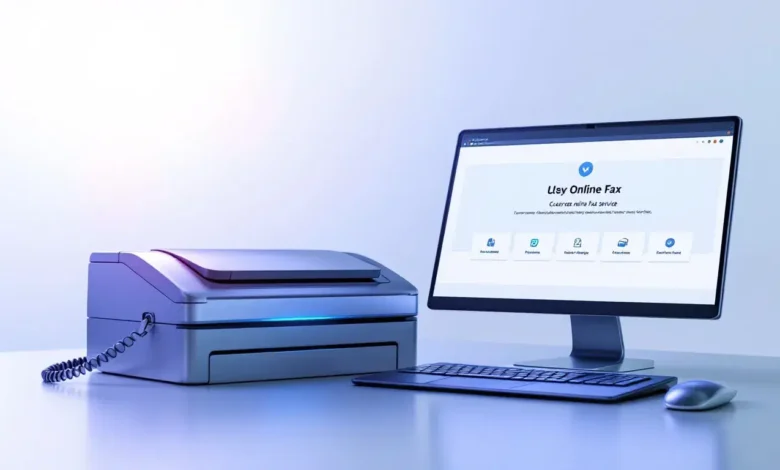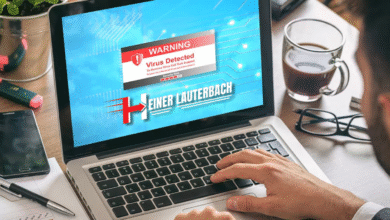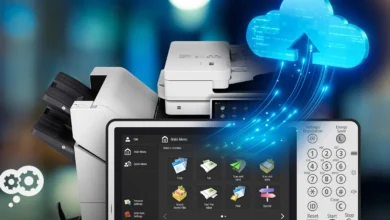The Importance of Secure Healthcare Fax Communication

In today’s rapidly evolving healthcare landscape, secure communication is paramount, especially when it comes to transmitting sensitive patient information. Traditional fax machines, once a cornerstone of healthcare communication, pose significant privacy and security risks if not properly managed. These risks have prompted the healthcare industry to seek more secure fax solutions. Understanding the importance of safeguarding patient data and remaining compliant with health information privacy laws is critical for healthcare providers. Below, we will explore the nuances of secure healthcare fax solutions like InterFax and their role in protecting patient confidentiality and ensuring efficient healthcare operations.
Health Insurance Portability and Accountability Act (HIPAA) Compliance and Secure Faxing: What You Need to Know
Alt text: Healthcare professional reviewing documents at a fax machine—emphasizing the need for secure healthcare fax solutions.
The HIPAA sets the standard for protecting sensitive patient data. Any entity dealing with protected health information (PHI) must ensure all required physical, network, and process security measures are in place and followed. This includes fax communications, which must be conducted in a manner that adheres to HIPAA’s stringent requirements.
When healthcare organizations consider faxing solutions, HIPAA compliance is a key factor. Secure fax services must provide features like encryption, access controls, and audit trails to comply with HIPAA regulations. Understanding these requirements is essential for healthcare providers to avoid costly breaches and non-compliance fines.
In the context of faxing, HIPAA compliance is not optional; it’s obligatory. Implementing a secure healthcare fax solution that complies with HIPAA guidelines is imperative. It ensures that PHI is transmitted securely and that the healthcare provider fulfills its legal obligations to protect patient privacy.
Advantages of Secure Fax Services in Healthcare Operations
Secure fax services offer numerous benefits that extend beyond compliance and security. They streamline communications, improve workflow, and enhance collaborative efforts among healthcare providers. With secure fax services, healthcare professionals can quickly and reliably exchange critical patient information without the risk of interception or exposure inherent to traditional faxing.
Additional advantages include reduced costs and administrative burdens. By adopting secure fax services, healthcare facilities can eliminate the need for paper, toner, and maintenance associated with traditional fax machines. This transition not only supports sustainability efforts but also leads to significant cost savings over time.
In an emergency, the speed and reliability of communication can be life-saving. Secure fax services are designed to handle the exigencies of healthcare operations, ensuring that time-sensitive documents reach their intended recipients promptly and securely. This can prove crucial in delivering timely care and making informed clinical decisions.
Implementing Encryption and Access Controls for Fax Security
Encryption is a core component of modern secure fax services, transforming sensitive information into a code that is unreadable to unauthorized parties. In healthcare, encrypting fax communications is a necessary safeguard against data breaches and cyber threats, ensuring that patient information remains confidential during transmission.
Access controls are equally important, as they limit the ability to send or retrieve faxes to authorized individuals only. The implementation of robust user authentication protocols prevents unauthorized access and ensures that only authenticated users with the appropriate permissions can handle PHI.
For healthcare providers, it’s not just about having these technologies in place but also about ensuring they are properly configured and consistently maintained. Regular audits and updates of encryption standards and access controls help keep pace with evolving threats and technological advancements.
Best Practices for Maintaining Secure Healthcare Fax Communication
Alt text: Doctor reviewing patient records with pen and clipboard—underscoring the importance of secure healthcare fax for medical data transmission.
To maintain secure healthcare fax communication, healthcare providers should adopt a culture of privacy and security. This includes developing clear policies for handling faxes, providing staff training on these policies, and regularly reminding personnel of the importance of fax security through ongoing education and awareness programs.
Regularly reviewing and updating security measures is also essential. As technology and threats evolve, so should the strategies to combat them. This proactive approach keeps healthcare providers ahead of potential risks and ensures the continuous protection of PHI.
Altogether, the secure transmission of healthcare information via fax remains an essential component of daily operations in the healthcare industry. Adopting the right measures and harnessing the benefits of modern secure fax services not only enhances the delivery of care but fortifies the trust patients place in healthcare providers. The healthcare sector must continue prioritizing patient confidentiality and regulatory compliance in all aspects of data transmission, with secure healthcare fax communication playing a pivotal role.



